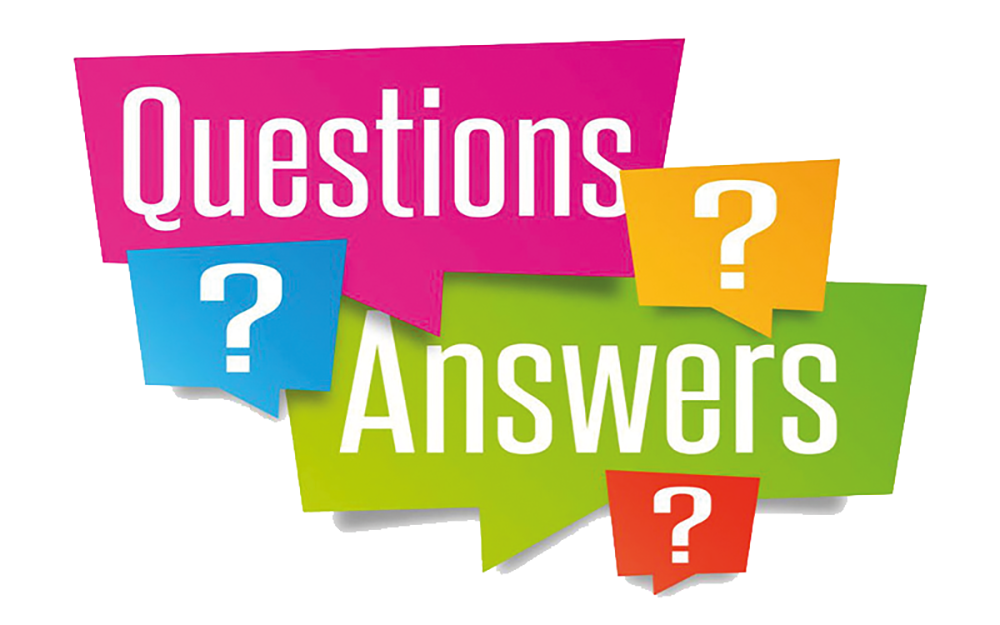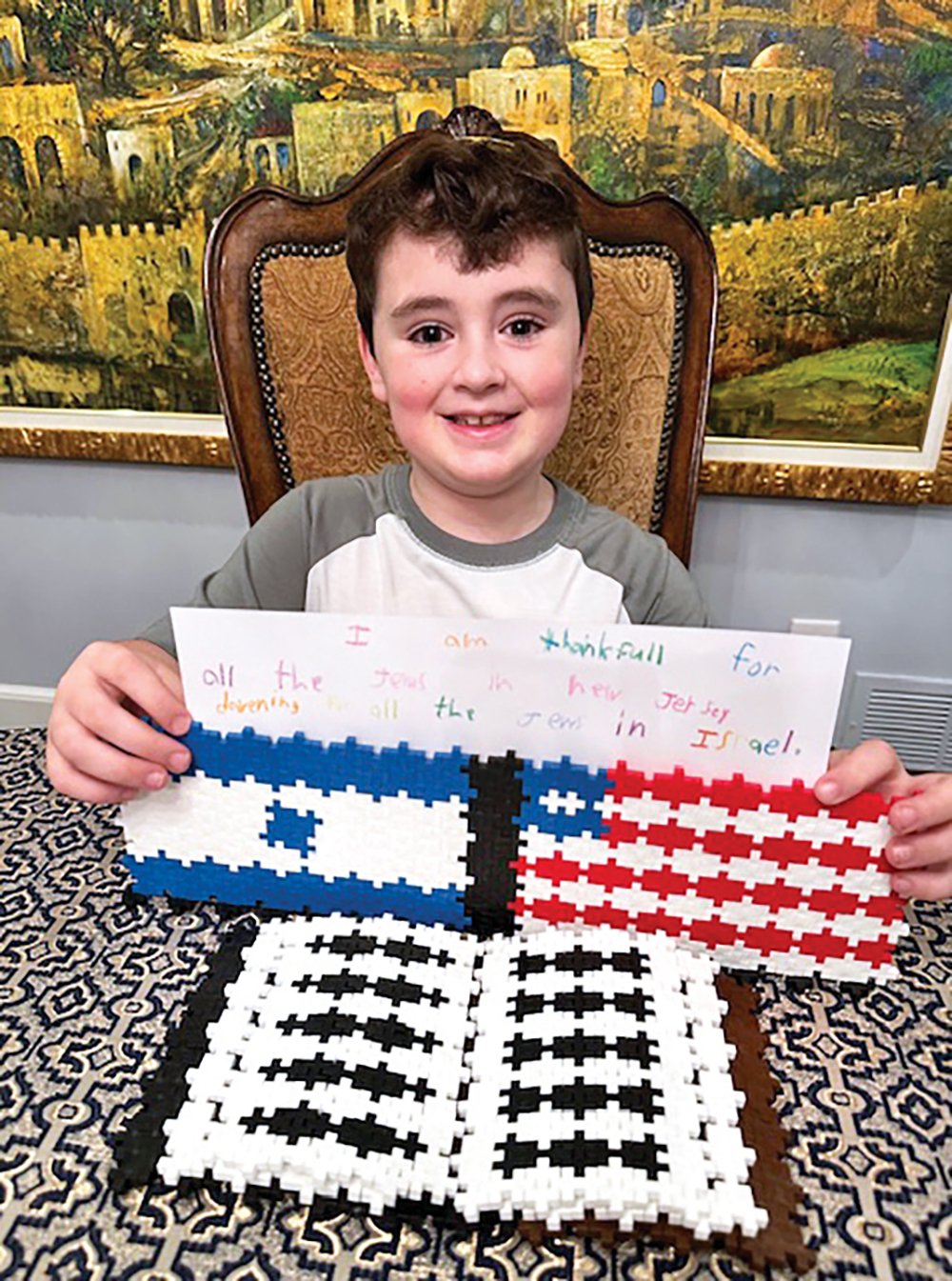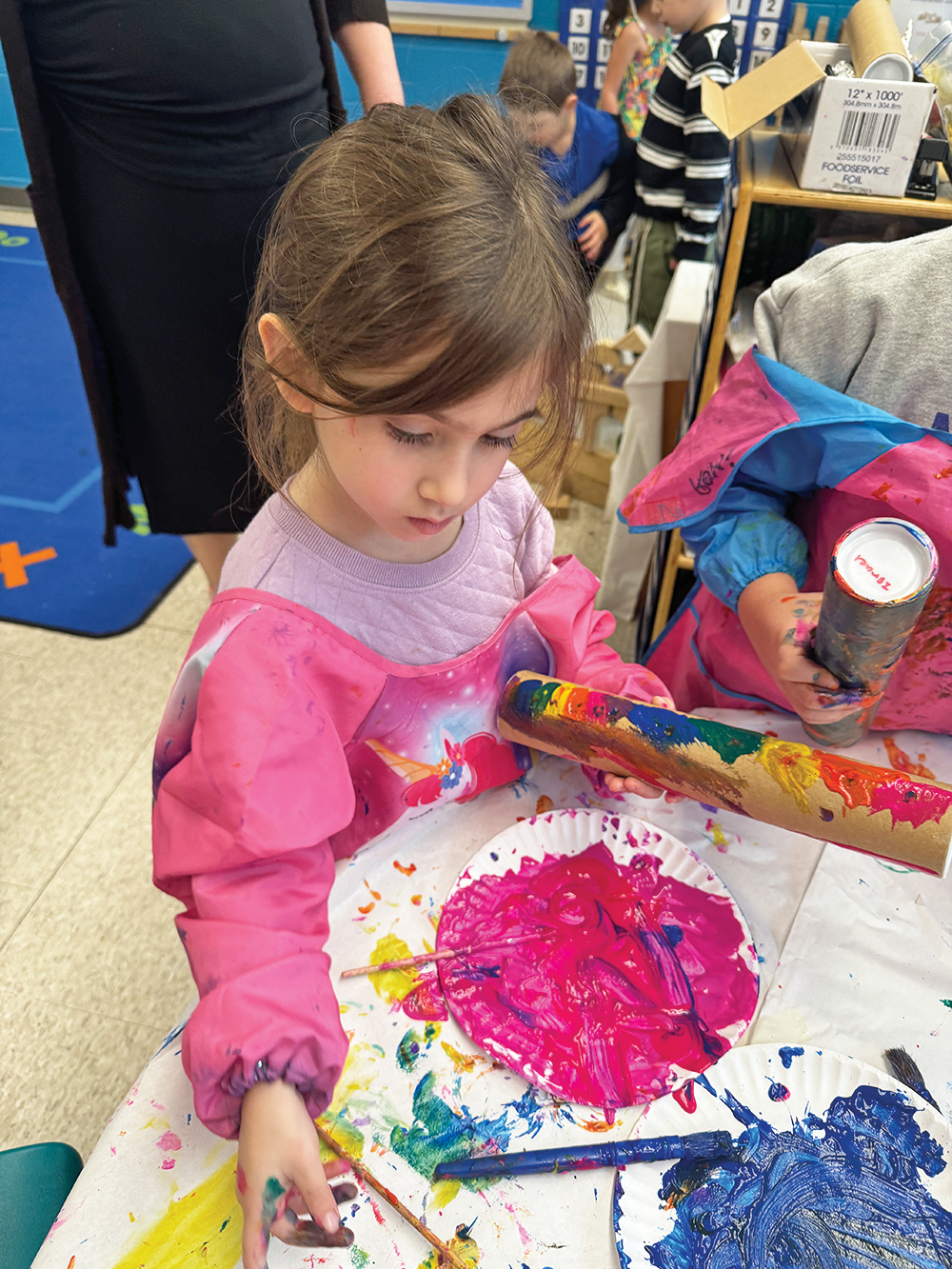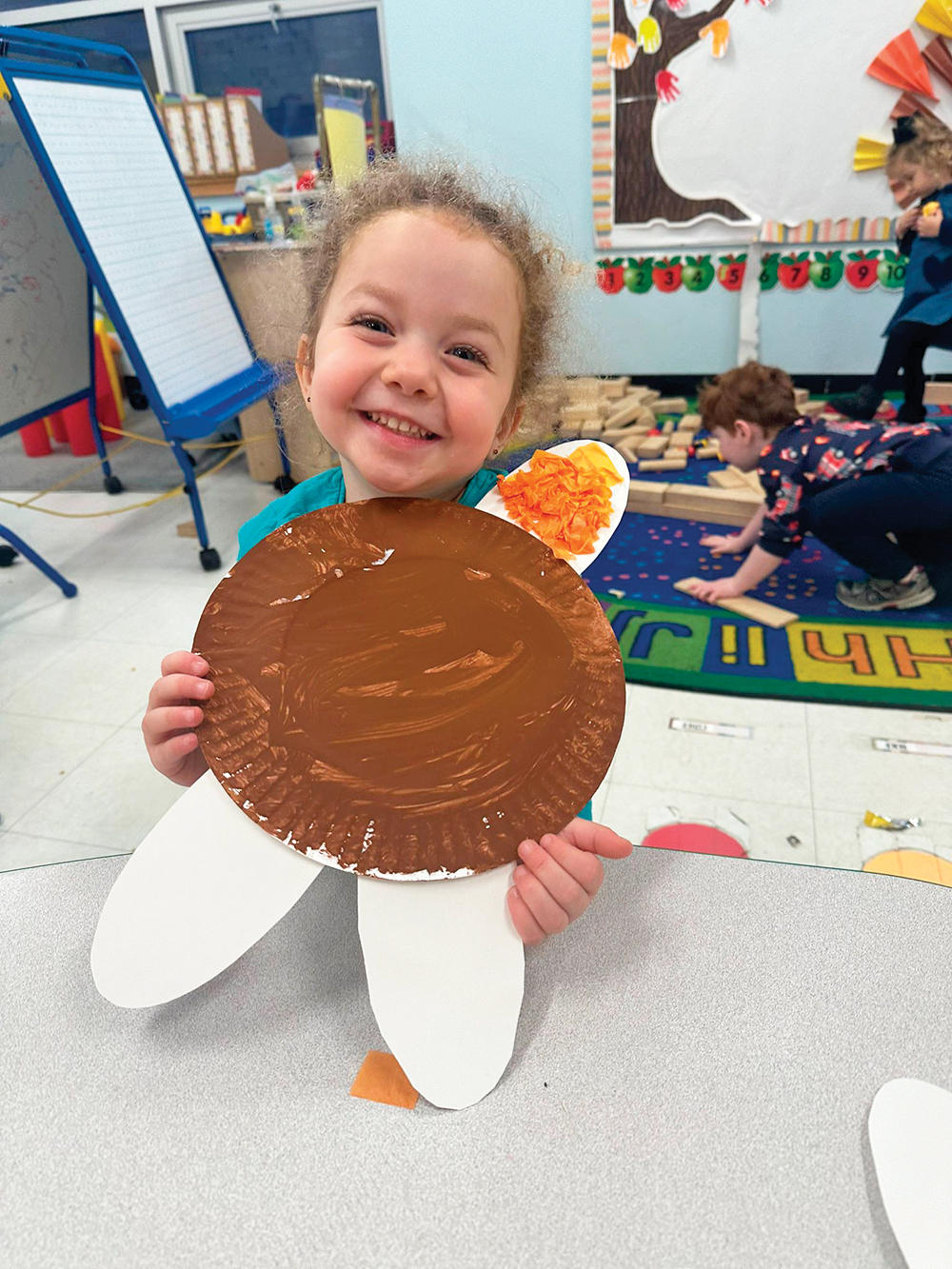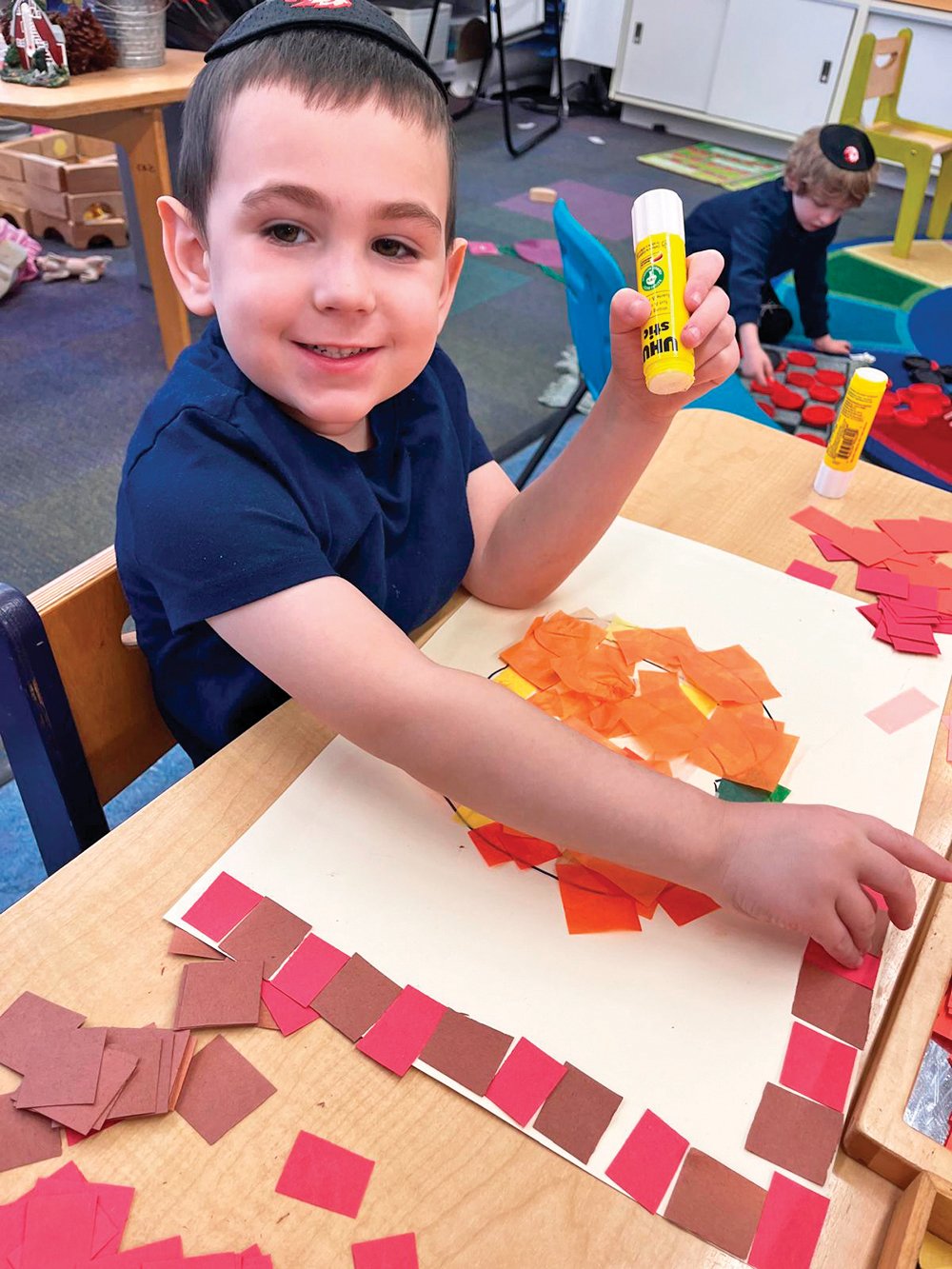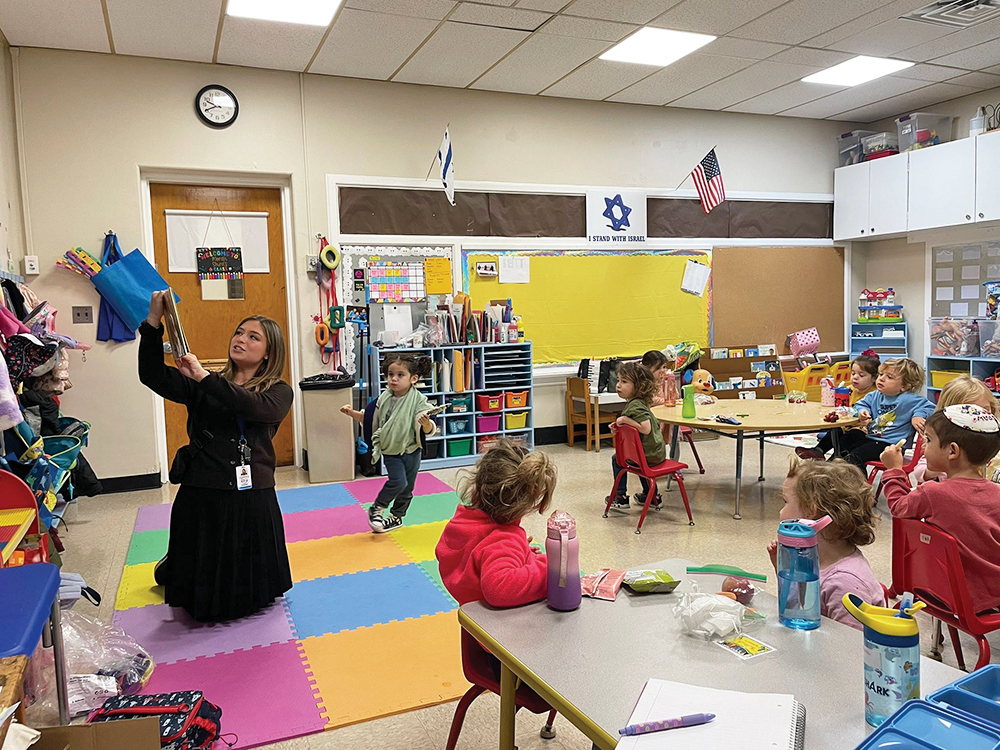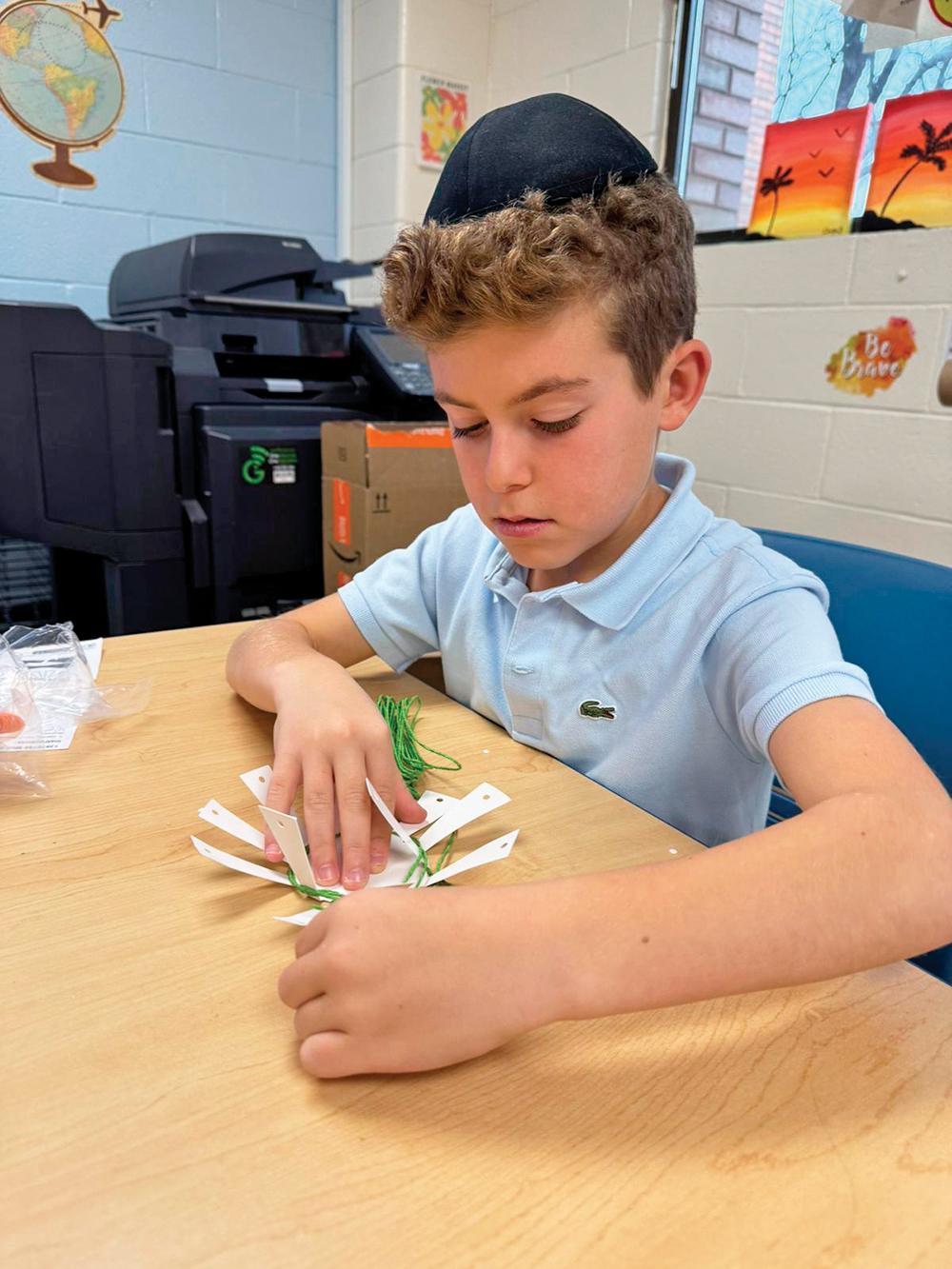Mordechai Shapiro has been performing in the Jewish music world since he joined the Miami Boys Choir in 1997 as a star soloist. After taking some time off as a teenager, he has now become one of the most sought after lead singers at weddings and concerts around the world. He recorded his first album in 2016 and has continued to record hit albums and music videos with millions of views. The Jewish Link recently had the opportunity to sit down with Shapiro.
You’ve been singing and writing songs since childhood. Can you tell us how you have developed as a musician and composer over the years?
I started in Miami Boys Choir when I was 8-years-old. Until the age of 14, while most of my friends were in Little League or having fun in other ways, I was going to rehearsals for two to three hours every Sunday. That was my entire childhood, but it was great! I started taking piano lessons when I was about 7-years-old, but I didn’t like practicing. After I stopped taking lessons, I started playing by ear and I couldn’t leave the piano.
I started writing songs when I was 10 or 12 years old. My first popular song was “Ani Maamin,” which I wrote shortly after I got married. But even after that song had a few hundred thousand views on YouTube, I still didn’t really consider myself a composer. I wrote “Machar” for my second album. My producer at the time told me, “This song is fire, it has to open up the album.” It did, and it became a big hit. That’s when I started to really gain confidence with my composition.
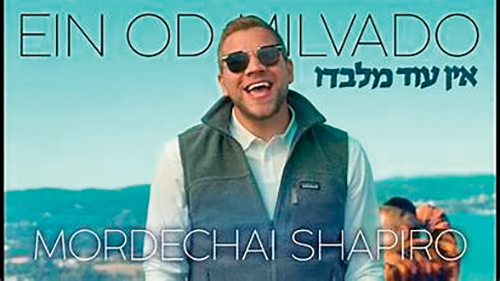
You come from a musical family. How did they help you develop your talent?
My father was a chazzan, my mother was an opera singer and my six siblings all sing. From a very young age, I learned harmonies and music theory just from being around them. I learned davening from my father, who was always very meticulous. There was no fumbling through or just figuring it out. My mother taught me a lot about commitment and showing up. She drove us to Brooklyn for Miami Boys Choir practice every Sunday.
So all those things together – the family experience, the harmonies, the commitment from my mother, my father’s insistence about where everything belonged in the music – were a big part of how I developed my talent.
Are any of your children old enough to be studying music now?
Yes. I have five children: four girls and one boy. My oldest is 13. My next one is 12. Then I have a son who’s 8, another daughter who’s 6 and a daughter who’s 3. My 8-year-old son sings beautifully but he’s a little shy so we’ll see what happens. We sing a lot in the house. Some of my kids play piano by ear. I’m teaching them harmonies and helping them with vocal technique as much as I can without putting too much pressure on them.
Who are your other musical influences, both within and outside of the Jewish music world?
I grew up in a Modern Orthodox home, so I was not too familiar with some of the mainstream Hasidic or yeshivish singers like Avraham Fried or Mordechai ben David. I listened to Shwekey, Baruch Levine, Lev Tahor, Shalsheles, a little bit of Dedi and maybe Shloime Dachs in the 90s. I was exposed to all types of secular music as I was growing up, from Frank Sinatra and Michael Jackson to show tunes from Broadway. I had a wide spectrum of influences.
Are there any specific themes or messages that you consistently explore in your music?
A general theme in a lot of my music is finding light in the darkness. That’s what “Machar,” the song I wrote on my second album, is about. Our goal is to try to find Hashem and find the light and joy in every moment, in every day.
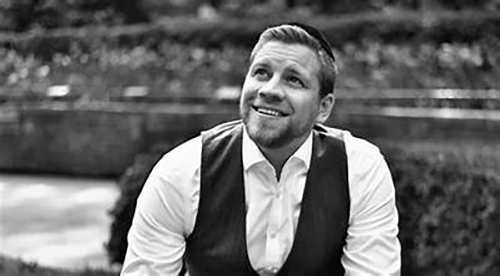
You have been one of the most requested singers at smachot. Are you still performing at weddings? How is performing in concert different from performing at a simcha?
I’m definitely still singing at weddings and concerts. Both are great. Weddings are beautiful. I love being part of the special night for the chosson and kallah. I would say weddings are a little bit harder than concerts. It’s more challenging vocally because you’re singing from the chuppah through the second and sometimes third dance. At concerts, I sing for about 90 minutes, maybe two hours. People buy tickets to come to my concert and sing along to be a part of that experience. So there’s a little bit more engagement and connection at a concert than at a wedding. I love doing both and appreciate every opportunity.
Every song has a story. What are your top three or four favorite songs you have written and recorded and what inspired them?
One of my favorite songs is “B’yachad.” Yachad, the organization that helps children with disabilities and special needs, reached out to me to write a song about unity. We wrote a song about how we all have different things that we like and dislike, and that’s okay, because we’re not all supposed to be the same. We can put our differences aside and realize that we’re all brothers and sisters, and we have to love one another no matter what. That song took off way beyond my expectations. It became one of my biggest hits and I love singing it.
My second favorite song is probably “Hakol Mishamayim.” Everything is from Shamayim. When things are going well, sometimes you forget to be grateful, to be thankful, and to appreciate the good until things get bad. And then you realize you should be more appreciative and turn to Hashem.
“Ein Od Milvado” has a similar message. Everything is from Hashem. And sometimes we only realize that when tragedy occurs, like on Oct. 7. We should be zoche to love each other even without tragedy. We should see the greatness of every fellow Jew no matter where they come from, without having to go through war, tragedy or death.
On your way to becoming a full-time performer, you taught in a school for children with autism and you have been a music teacher. What have your students taught you about the world and have they been the inspiration for any of your songs?
I absolutely loved my time as a teacher, and I was so sad to leave when my singing career got too busy. I was traveling and I couldn’t juggle both. Often on Sunday, I’d be out of town and I’d have to fly in on a red eye and go straight to school on Monday morning to teach a class, or run a graduation play or a Chumash play. I was tired; I couldn’t give it 100%. I decided to run after my dream as a singer. But I enjoyed teaching tremendously. I used to show some of my songs to my students before they even came out, just to see if they would like them.
I learned a lot about patience from working with children that I can now utilize as a father. As you get older, life gets a little bit more complex and intense. Kids look forward to the simple things in life like an ice cream truck. When you hang out with kids daily in class, you feel that energy and it’s contagious. It taught me to be appreciative, grateful and happy about even the smallest things.
You performed in the United Hatzalah concert in Israel on Oct. 4. Were you still in the country on Oct. 7?
We were there on Oct. 7 and it was very scary. This was the first time I brought my family to Israel with me for Sukkot. It was certainly traumatizing in many ways, but I have no regrets. I’m happy that they were a part of the experience of being in Israel. I’m appreciative that we got to feel the achdut, the unity and the love as well as the fear. We were sad to go.
You’ve had several concerts since October 7. How do you raise the emunah and bitachon of your audience with your music while acknowledging everyone’s pain? Are you writing any songs now influenced by that tragic day or the war?
I have done many shows since Oct. 7. It was tough for me to get back on stage and I felt it was tough for everybody to get back in the concert mood. We have to build our emunah and bitachon to recognize that Hashem wants us to call out to him, to daven to him, and to get close to him. We feel sadness and fear. But we have to continue to find joy in our lives. My next album has several messages of unity, geulah and redemption, and finding the light in dark times.
So you’re working on a new album now?
I am absolutely working on a new album, which I hope will be out before the summer, but I’m not making promises. I was down for a long time after Oct. 7 and lost the inspiration to produce and write. My album will come out when it’s meant to be released. I’m very excited about my new music. I can’t wait to share it with the world!
Since this article is part of the Pesach Activity Guide, what is your favorite Chol Hamoed activity?
My favorite part of Chol Hamoed is if I get a moment to just sit and hang out with my kids, have some matzah and connect with them. For the last 10 years or more, I’ve been performing. Kids are off from school and everyone’s off from work, but that’s when we have to work the hardest.
You are performing on April 25 with Benny Friedman and Aryeh Kunstler. Will you each be doing your own music or performing songs together?
We will be doing a bunch of collaborations. I really love to perform with Benny; we have performed many times together. Aryeh and I are good friends. He is a tremendous guitar player. We’ve done some shows where he played guitar but not where he is a lead singer. I’m very excited to be on stage with both of them. And yes, you can expect some exciting duets!
Bracha Schwartz is the special sections editor at The Jewish Link.


